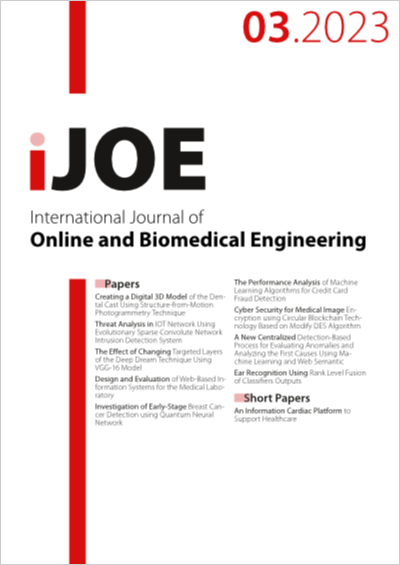The Performance Analysis of Machine Learning Algorithms for Credit Card Fraud Detection
DOI:
https://doi.org/10.3991/ijoe.v19i03.35331Keywords:
Classification, Machine Learning, PCA, PCAFuzzy C-Means, Logistic Regression (LR), Decision Tree (DT), Naive Bayes (NB) AlgorithmsAbstract
This paper studies the performance analysis of machine learning (ML) and data mining techniques for anomaly detection in credit cards. As the usage of digital money or plastic money grows in developing nations, so does the risk of fraud. To counter these scams, we need a sophisticated fraud detection method that not only identifies the fraud but also detects it before it occurs efficiently. We have introduced the notion of credit card fraud and its many variants in this research. Numerous ML fraud detection approaches are studied in this paper including Principal Component Analysis (PCA) data mining and the Fuzzy C-Means methodologies, as well as the Logistic Regression (LR), Decision Tree (DT), and Naive Bayes (NB) algorithms. The existing and proposed models for credit card fraud detection have been thoroughly reviewed, and these strategies have been compared using quantitative metrics including accuracy rate and characteristics curves. This paper discusses the shortcomings of existing models and proposes an efficient technique to analyze the fraud detection.
Downloads
Published
How to Cite
Issue
Section
License
Copyright (c) 2023 Muhammad Zohaib Khan, Sarmad Ahmed Shaikh, Muneer Ahmed Shaikh, Kamlesh Kumar Khatri, Mahira Abdul Rauf, Ayesha Kalhoro, Muhammad Adnan

This work is licensed under a Creative Commons Attribution 4.0 International License.



